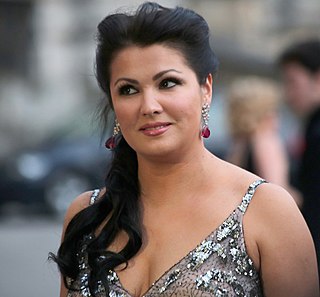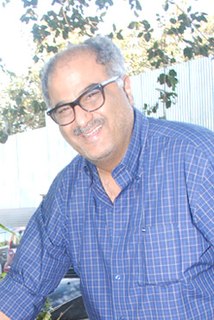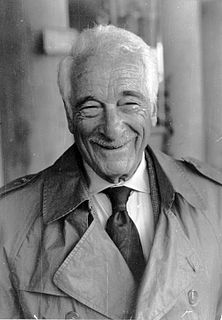A Quote by Igor Stravinsky
An audience is an abstraction; it has no taste. It must depend on the only person who has (pardon, should have), the conductor.
Related Quotes
Normally classical music is set up so you have professionals on a stage and a bunch of audience - it's us versus them. You spend your entire time as an audience member looking at the back of the conductor so you're already aware of a certain kind of hierarchy when you are there: there are people who can do it, who are on stage, and you aren't on stage so you can't do it. There's also a conductor who is telling the people who are onstage exactly what to do and when to do it and so you know that person is more important than the people on stage.
My wish and hope, every year, is that people's life chances - their chances of having a happy, prosperous, healthy life for themselves and their family and friends - should not depend on accident of birth. It shouldn't depend on where you're born. It should depend on who you are and what you do. But it shouldn't depend on the chance and the luck of being born in the U.S. or in a poor village in Sub-Saharan Africa or India or wherever it may be.
Suppose that a person writes what she must. That is only the first step of becoming a writer. The work must survive the moment of creation. It must get out to an audience. She or he must dare to show the work. She must risk ridicule, misunderstanding, scandal, condemnation, & what's often worse, none of the above: silence. No attention at all.
Perhaps the chief requirement of [the conductor] is that he be humble before the composer; that he never interpose himself between the music and the audience; that all his efforts, however strenuous or glamorous, be made in the service of the composer's meaning - the music itself, which, after all, is the whole reason for the conductor's existence.
Ours is the only religion that does not depend on a person or persons; it is based upon principles. At the same time there is room for millions of persons. There is ample ground for introducing persons, but each one of them must be an illustration of the principles. We must not forget that. These principles of our religion are all safe, and it should be the life-work of everyone of us to keep then safe, and to keep them free from the accumulating dirt and dust of ages.
What appeals to me about an American music directorship is the involvement of the conductor with the orchestra and the community. I think that's a fantastic thing. In Europe, being principal conductor means merely that you're the person who does most of the concerts. For me, that simply isn't enough.
This is our dilemma--either to taste and not to know or to know and not to taste--or, more strictly, to lack one kind of knowledge because we are in an experience or to lack another kind because we are outside it. [. . .] Of this tragic dilemma myth is the partial solution. In the enjoyment of a great myth we come nearest to experiencing as a concrete what can otherwise be understood only as an abstraction.







































